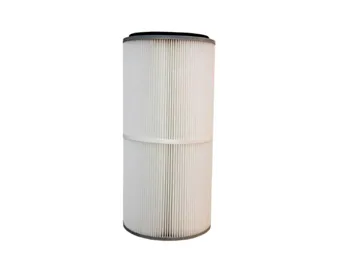 Tel:
+8618931101301
Tel:
+8618931101301
Oct . 22, 2024 14:59 Back to list
Efficient Cartridge Dust Collector Filters for Industrial Air Quality Management
Understanding Cartridge Dust Collector Filters Efficiency and Importance in Industrial Applications
In today’s industrial landscape, maintaining air quality is paramount. Industries often generate dust, particulates, and pollutants that can affect not only environmental conditions but also the health of workers. One of the most effective solutions for managing airborne particulates is through the use of cartridge dust collector filters. These essential components of dust collection systems help ensure a cleaner, safer work environment by capturing harmful particulates before they can be released into the atmosphere.
What is a Cartridge Dust Collector Filter?
A cartridge dust collector filter is a type of filter that is designed to capture dust particles in industrial environments. Unlike traditional bag filters, which use fabric bags to trap dust, cartridge filters utilize cylindrical filter elements that are made from advanced materials, offering a greater surface area in a compact size. This design allows them to effectively capture fine and ultrafine particles, making them suitable for various applications ranging from woodworking to metalworking and pharmaceutical manufacturing.
How Cartridge Filters Work
The operation of a cartridge dust collector filter is relatively straightforward. As contaminated air is drawn into the dust collector system, it passes through the cartridge filters. The filter material traps dust particles while allowing clean air to flow through and exit the system. Over time, dust accumulation occurs on the filter surface, necessitating a cleaning process. Most modern systems employ a pulsating jet of compressed air to dislodge the collected dust, ensuring the filter remains efficient in capturing airborne particles.
Advantages of Cartridge Dust Collector Filters
1. High Efficiency Cartridge filters boast a high filtration efficiency, capable of capturing particles as small as 0.5 microns. This is critical for industries that produce fine particulates and require stringent air quality standards to meet regulatory compliance.
cartridge dust collector filter

2. Space-Saving Design Because of their compact cylindrical shape, cartridge filters require less space than traditional bag filters. This makes them ideal for environments where space is at a premium.
3. Lower Operating Costs The efficiency of cartridge filters often leads to lower energy consumption. Additionally, their durability means they generally require fewer replacements, resulting in reduced maintenance costs over time.
4. Versatility Cartridge filters are suitable for a wide range of applications, including collection of hazardous dust, fine powders, and toxic substances.
5. Easy Maintenance The construction of cartridge dust collector filters allows for easier and quicker replacement compared to bag-style filters, meaning less downtime for maintenance.
Selecting the Right Cartridge Filter
When selecting a cartridge dust collector filter, it’s crucial to consider factors such as the type of dust being collected, the volume of air being filtered, and the specific requirements of the industry. Different materials and designs are available to cater to various particulate characteristics. For instance, some filters are designed to manage sticky or oily dust, while others are better suited for dry, non-hygroscopic particles. Understanding the application and its requirements will aid in choosing the most effective filtration solution.
Conclusion
In conclusion, cartridge dust collector filters play a vital role in maintaining air quality in industrial settings. Their efficiency, space-saving design, and versatility make them a popular choice among manufacturers looking to keep their work environments safe and compliant with regulations. As industries continue to grow, the importance of effective air filtration solutions like cartridge filters will only increase, driving innovation and enhancing safety practices across various sectors. Investing in high-quality cartridge dust collector filters is not only an investment in equipment but also a commitment to worker safety and environmental stewardship.
-
Working principle of high-efficiency dust filter elementNewsJun.26,2025
-
The truth about washable filters: Does repeated use really not affect efficiency?NewsJun.25,2025
-
Effect of humidity on the performance of activated carbon filter elementsNewsJun.24,2025
-
Material selection considerations for dust removal filter elements under high temperature conditionsNewsJun.23,2025
-
Cold knowledge of air filters: Why are some designed to be pleated?NewsJun.16,2025
-
Factory direct supply! High-precision air filter element wholesale and customizationNewsJun.12,2025

 Email:
Email:





